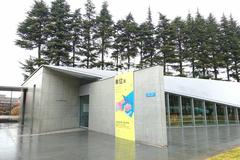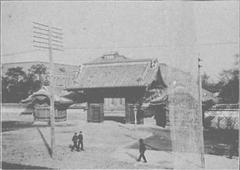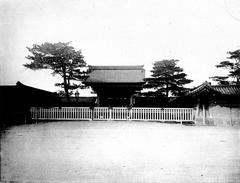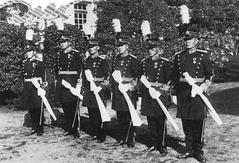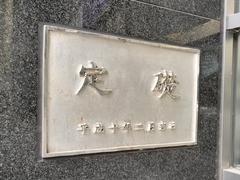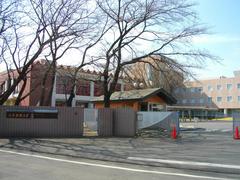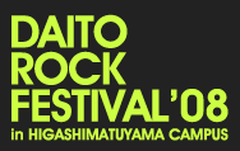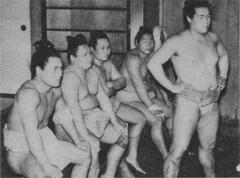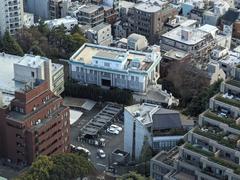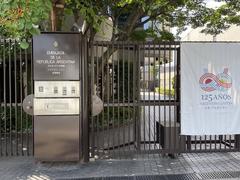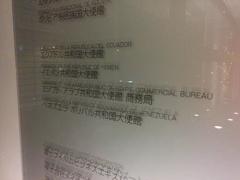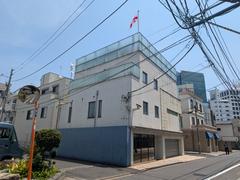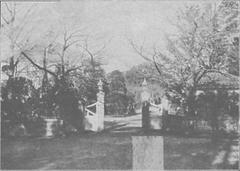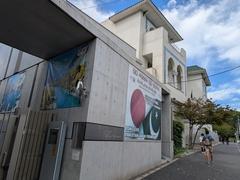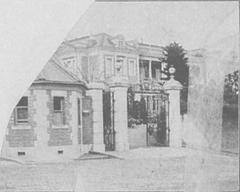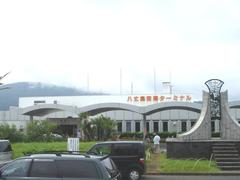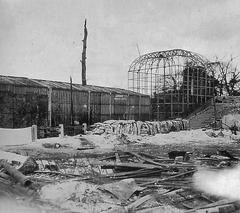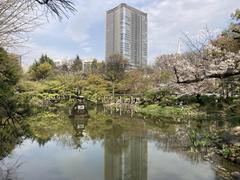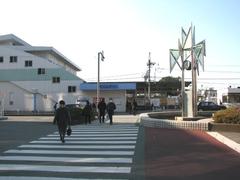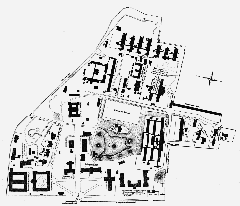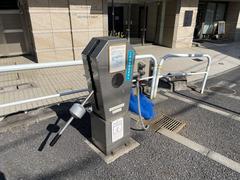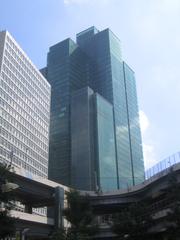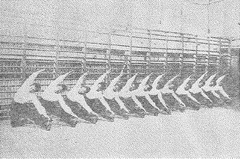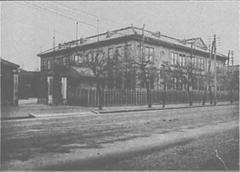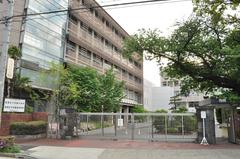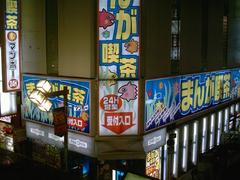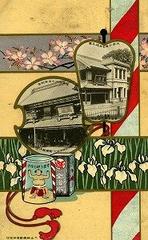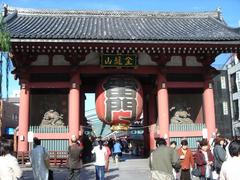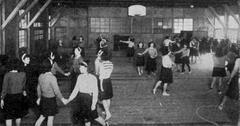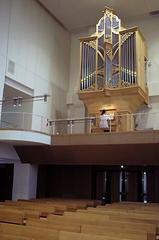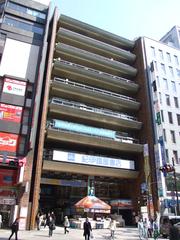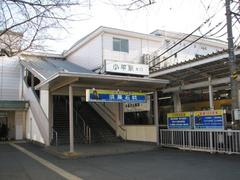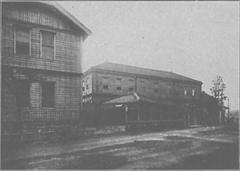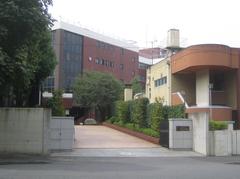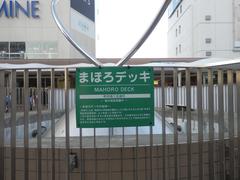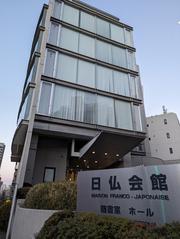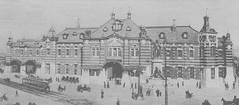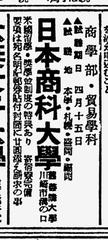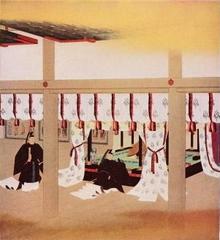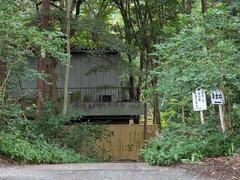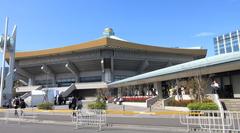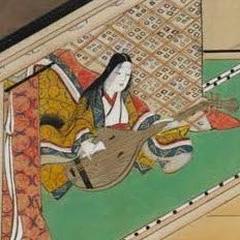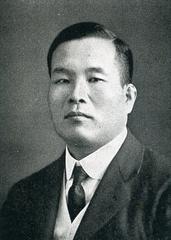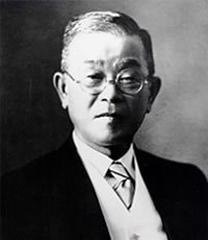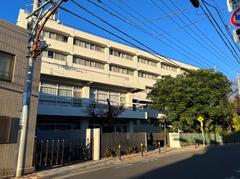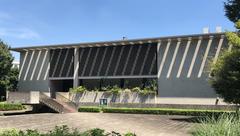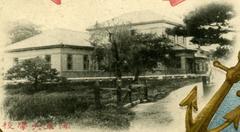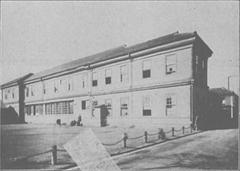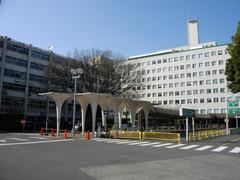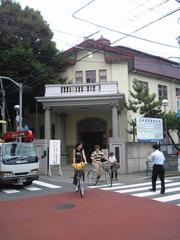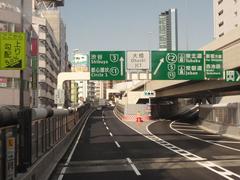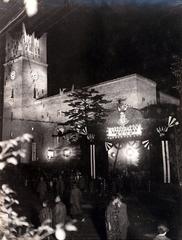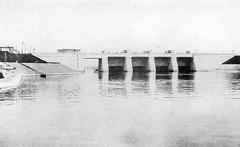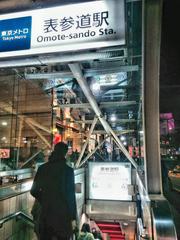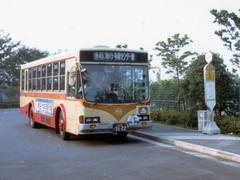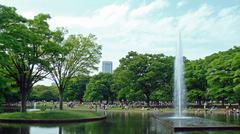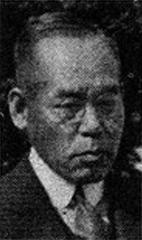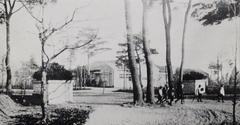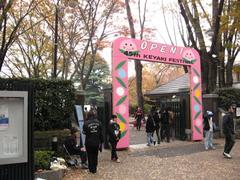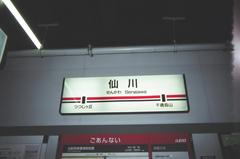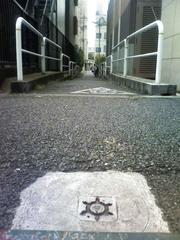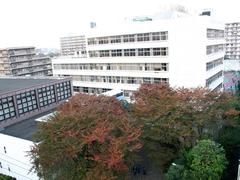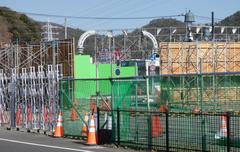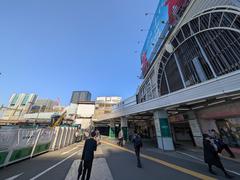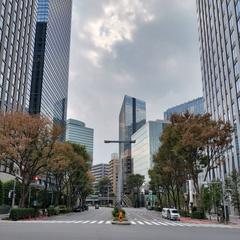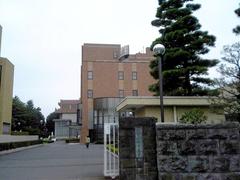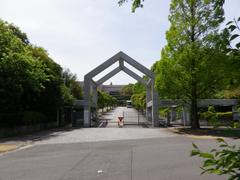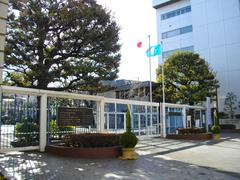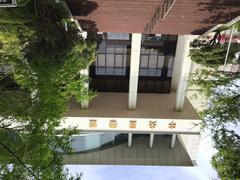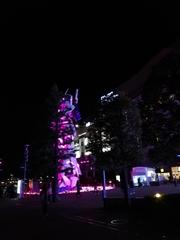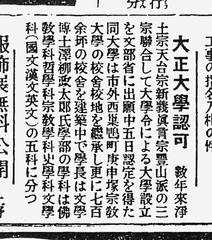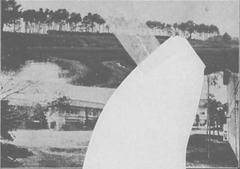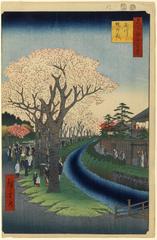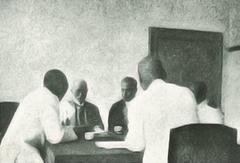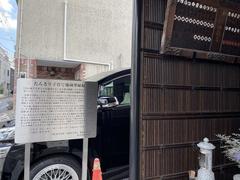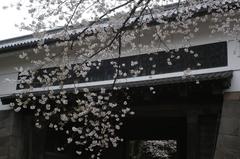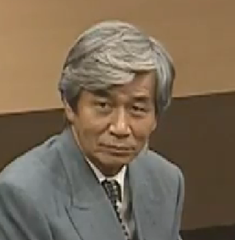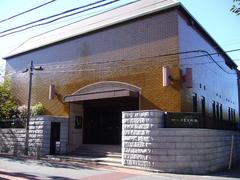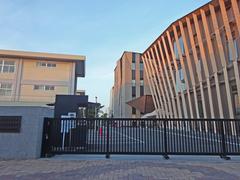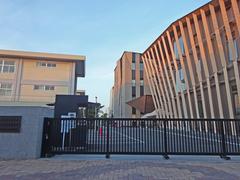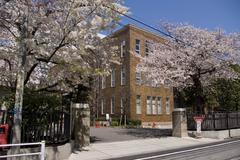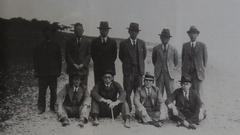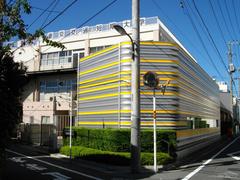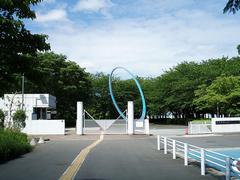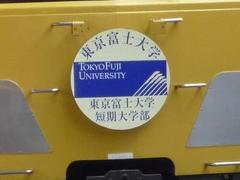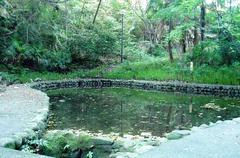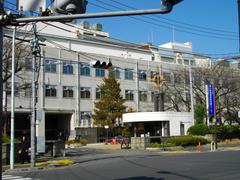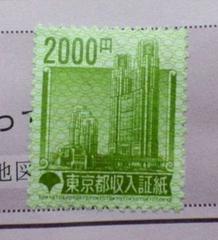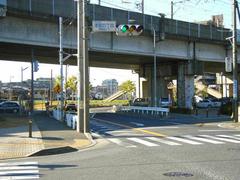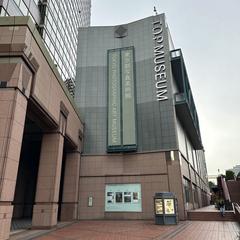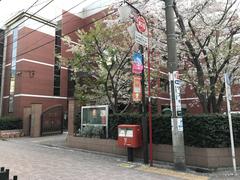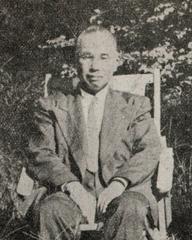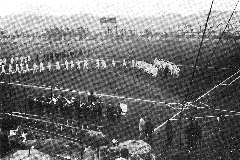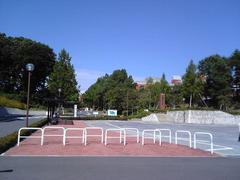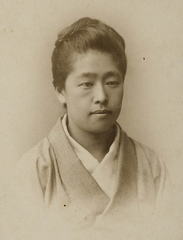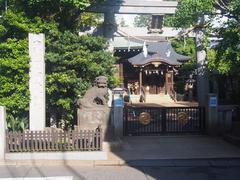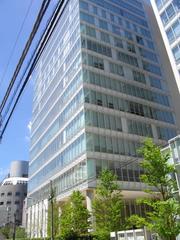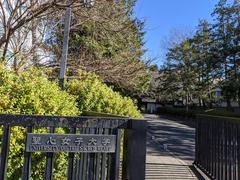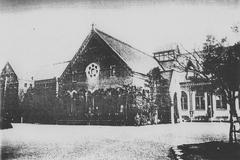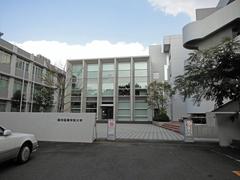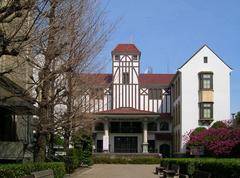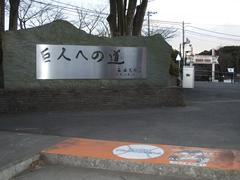Samurai Museum Tokyo: Visiting Hours, Tickets, and the Ultimate Guide to Historical Sites
Date: 14/06/2025
Introduction
The Samurai Museum Tokyo stands as one of Japan’s foremost destinations for exploring the legendary samurai and ninja traditions. Combining authentic artifacts, immersive exhibits, and engaging hands-on experiences, the museum is an essential stop for history buffs, families, and anyone interested in Japanese culture. This comprehensive, SEO-optimized guide details everything you need to know about visiting the Samurai Museum Tokyo: hours, ticketing, accessibility, nearby attractions, educational programs, and travel tips to make your visit unforgettable (Samurai Museum Official Guide; YouGoJapan).
Table of Contents
- Historical Background and Cultural Significance of the Samurai
- Visiting the Samurai Museum: Practical Information
- Exhibitions and Interactive Experiences
- Mission, Vision, and Museum Origins
- Location, Access & Visiting Hours
- Visitor Tips and Essential Information
- Educational Programs and Family Features
- Nearby Attractions and Seasonal Highlights
- Frequently Asked Questions (FAQ)
- Conclusion
- References and Further Reading
Historical Background and Cultural Significance of the Samurai
Origins and Evolution
The samurai, Japan’s iconic warrior class, emerged during the late Heian period (794–1185 CE), as military families like the Minamoto and Taira rose to power (Samurai Museum Official Guide). Their ascent culminated in the establishment of the Kamakura shogunate, ushering in centuries of samurai-led governance through the Kamakura, Muromachi, Azuchi-Momoyama, and Edo periods (YouGoJapan). Over time, the samurai evolved from regional warriors to a hereditary elite, shaping politics, society, and the arts until the Meiji Restoration of 1868.
The Bushidō Code
Bushidō, or “the way of the warrior,” was central to samurai identity, emphasizing loyalty, honor, courage, and self-discipline (TravelPander). Rooted in Confucian, Buddhist, and Shinto beliefs, bushidō influenced governance, education, and culture, leaving a legacy visible in modern Japanese values.
Samurai in Warfare and Society
Samurai served as warriors and administrators. Their weaponry evolved from bows to swords (katana) and, eventually, firearms (TokyoCheapo). In times of peace, especially during the Tokugawa shogunate, many became bureaucrats, poets, and patrons of the arts.
Cultural Contributions
The samurai’s impact went beyond the battlefield. Their patronage fostered the development of Noh theater, ink painting, and the tea ceremony. Samurai armor and swords are celebrated for their craftsmanship (Samurai Museum Official Website; YouGoJapan).
Decline and Legacy
The Meiji Restoration abolished the samurai class and the feudal order. Many former samurai became officials or entrepreneurs, while their traditions and values continued to shape Japanese identity (Samurai Museum Official Guide).
Visiting the Samurai Museum: Practical Information
Visiting Hours
- Samurai Museum Tokyo (Asakusa): 9:00 AM – 6:00 PM daily, last admission at 5:30 PM (Mai-Ko).
- Samurai Ninja Museum Tokyo With Experience: 10:30 AM – 9:00 PM daily, last admission at 8:30 PM (Tokyo Tourist Information).
- Note: Hours may change seasonally; always check the official website before visiting.
Tickets and Admission
- Standard Admission: ¥3,000 (adults), ¥2,700 (children), includes museum entry, guided tour, hands-on armor trial, ninja experience, and show (when available).
- Upgraded Experiences: Ninja training, sword cutting, and tea ceremonies are available at additional cost.
- Discounts: 10% off for online bookings and combo tickets with nearby activities (Mai-Ko).
- Booking: Purchase tickets online to secure your preferred time and avoid queues.
Accessibility
- Wheelchair Access: Ramps, elevators, and accessible restrooms are available.
- Support: Staff are trained to assist guests with mobility challenges and special needs.
Location and Transportation
- Address: 1-8-13, NishiAsakusa, Taito-ku, Tokyo (Mai-Ko).
- Subway: Near Asakusa Station (Ginza, Toei Asakusa, Tobu Skytree Lines) and Tawaramachi Station.
- Walking: Steps from Senso-ji Temple and other Asakusa landmarks.
Exhibitions and Interactive Experiences
Permanent and Rotating Displays
- Samurai Armor and Weaponry: Extensive collections of armor (yoroi), helmets (kabuto), swords (katana), and historical firearms (Japan Experience).
- Ninja Artifacts: Shuriken, kunai, and stealth tools illustrate the ninja-samurai dynamic (Tokyo Tourist Information).
- Thematic Exhibits: Panels and multimedia presentations explain the bushidō code, samurai daily life, and famous battles.
- Temporary Exhibitions: Featuring specific clans, battles, or historical figures; frequent updates ensure new experiences for repeat visitors (JW Web Magazine).
Interactive Experiences
- Guided Tours: Free English-language tours multiple times daily, led by expert staff (Time Out Tokyo).
- Live Sword Demonstrations: Up to four times daily, showcasing authentic sword techniques and duels (TravelCaffeine).
- Samurai Armor Dress-Up: Wear replica armor and pose for photos.
- Ninja Training: Basic stealth, agility, and shuriken-throwing in a safe, supervised environment.
- Premium Experiences: Ninja courses, tameshigiri (real sword cutting), and traditional tea ceremonies (additional fees apply).
Mission, Vision, and Museum Origins
The Samurai Museum Tokyo was founded to both preserve and demystify the traditions of Japan’s legendary warriors. Its mission is to create an engaging, educational, and accessible venue for visitors of all backgrounds, ensuring the enduring legacy of samurai and ninja culture (Mai-Ko). The museum actively collaborates with local institutions, such as the Kimono Tea Ceremony Maikoya, to provide deeper cultural engagement.
Location, Access & Visiting Hours
- Neighborhood: Situated in historic Asakusa, close to Senso-ji Temple, Tokyo Skytree, Ueno Park, and vibrant shopping streets (Mai-Ko).
- Getting There: Easily accessible by subway and a short walk from major attractions.
- Opening Hours: 9:00 AM – 6:00 PM or 10:30 AM – 9:00 PM, depending on the museum branch (Tokyo Tourist Information).
- Tickets: Online booking recommended for discounts and guaranteed entry.
Visitor Tips and Essential Information
- Book in Advance: Secure tickets online, especially during holidays or weekends.
- Arrive Early: Early arrivals help avoid crowds and maximize your experience.
- Dress Comfortably: Closed-toe shoes and comfortable clothing are best for interactive activities.
- Photography: Personal photos are encouraged, with professional services available for dress-up sessions.
- Language: English signage and tours are standard; check for other language support if needed.
- Amenities: Lockers, gift shop, accessible restrooms.
Educational Programs and Family Features
- Guided Tours: Standard and specialized tours on samurai history, weapons, and philosophy (samurai-experience.com).
- Workshops: Armor dress-up, sword handling, ninja star throwing, and calligraphy classes.
- Cultural Demonstrations: Tea ceremony, Noh theater, and martial arts performances.
- For Kids: Activities are child-friendly, with staff support and interactive learning.
Nearby Attractions and Seasonal Highlights
- Senso-ji Temple: Tokyo’s oldest Buddhist temple, just minutes away.
- Nakamise Shopping Street: Traditional snacks and souvenirs.
- Ueno Park: Museums and seasonal cherry blossoms.
- Seasonal Events: Special programs during cherry blossom and autumn foliage seasons.
Frequently Asked Questions (FAQ)
Q: What are the Samurai Museum Tokyo visiting hours?
A: Hours range from 9:00 AM – 6:00 PM or 10:30 AM – 9:00 PM depending on location. Always check the official website for updates.
Q: How much are tickets?
A: Standard admission is ¥3,000 (adults), ¥2,700 (children). Upgraded experiences cost extra.
Q: Is the museum wheelchair accessible?
A: Yes, with ramps, elevators, and staff assistance.
Q: Are English tours available?
A: Yes, free English-language tours run several times daily.
Q: Can I dress up in samurai armor or try ninja training?
A: Yes, both are included with admission, with premium experiences available for an additional fee.
Q: Are tickets available online?
A: Yes, and online purchases receive a discount and priority booking.
Conclusion
The Samurai Museum Tokyo delivers an unparalleled journey through Japan’s warrior past, blending historical artifacts, interactive exhibits, and cultural performances. With convenient locations, multilingual support, and family-friendly activities, the museum is ideal for anyone seeking a memorable cultural experience in Tokyo. To make the most of your visit, book tickets in advance, explore seasonal events, and consider combining your trip with Asakusa’s other iconic sights.
For the latest information, ticket booking, and interactive guides, download the Audiala app and follow us on social media for exclusive updates and offers.
References and Further Reading
- Samurai Museum Official Guide
- Mai-Ko: Japan’s Best Samurai Museum
- Tokyo Tourist Information: Samurai Ninja Museum Tickets
- Samurai Experience: Traditional Japanese Arts
- Samurai Museum Official Website
- Japan Experience: Samurai Museum
- Time Out Tokyo: Samurai and Ninja Experiences
- TravelCaffeine: Samurai Museum Review
- TokyoCheapo: Samurai Museum Shinjuku
- TravelPander: Is Samurai Museum Tokyo Open?
